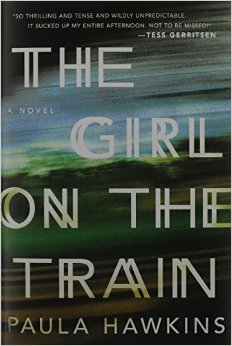The Sheikh greeted you with that sweet and
kindly look of his. And how enchanted you were by his fine white beard!
"So this is your son you were telling me about," he said to your
father. "There's a lot of intelligence in his eyes. His heart is as
spotless as yours. You'll find he'll turn out, with God's will, a truly good
man."
Yes, you really adored Sheikh Ali al
Junaydi, attracted by the purity in his face and the love in his eyes. And
those songs and chants of his had delighted you even before your heart was
purified by love.
"Tell this boy what it's his duty to
do," your father said to the Sheikh one day.
The Sheikh had gazed down at you and said,
"We continue learning from the cradle to the grave, but at least start
out, Said, by keeping close account of yourself and making sure that from
whatever action you initiate some good comes to someone."
Yes, you certainly followed his counsel, as
best you could though you only brought it to complete fulfillment when you took
up burglary!
The days passed like dreams. And then your
good father disappeared, suddenly gone, in a way that a boy simply could not
comprehend, and that seemed to baffle even Sheikh Ali himself. How shocked you
were that morning, shaking your head and rubbing your eyes to clear away the sleep,
awakened by your mother's screams and tears in the little room at the entrance
to the students' hostel! You wept with fear and frustration at your
helplessness. That evening however, Rauf Ilwan, at that time a student in Law
School, had shown how very capable he was. Yes, he was impressive all right, no
matter what the circumstances, and you loved him as you did Sheikh Ali, perhaps
even more. It was he who later worked hard to have you--or you and your mother,
to be more precise--take over Father's job as custodian for the building. Yes,
you took on responsibilities at an early age.
This passage from Chapter 11 of the novel is flashback that
Said is having as he remembers events and conversations from his past. In this
passage the reader learns detail's about Said's tragic past as he recounts the
death of his father and later his mother. From the perspective of both the
reader and Said himself this passage is the pinnacle of dramatic irony. Mahfouz creates a wonderful juxtaposition
between Said's past and his present. This conversation with the Sheikh
highlights the alternative path that Said could have taken had he not been
driven to a life of crime and had not become obsessed with getting revenge. As
the Sheikh says "His heart is as spotless as yours. You'll find he'll turn
out, with God's will, a truly good man." one begins to wonder how exactly
Said has strayed so far from his seemingly bright future. This scene also
raises the question of to what extent is Said's current character and predicament
due to situational or dispositional factors?
“Making sure that from whatever action you initiate some good comes to
someone."
Again we see this contrast of what Said was taught as a boy and the
way in which he lives his life in the present. After his release from jail and
Sana’s rejection, Said’s actions are of his own self-interest and almost all of
his actions result in someone else being harmed.
Furthermore, this passage serves to emphasize the strong bond that Said
shared with his beloved mentor Rauf as the reader gains some insight into how
the two met and under what circumstances. We see that Said truly looked up to
Rauf who symbolized the missing father figure in his life following the death
of his father. In the passage Said says “you loved him as you did Sheikh Ali,
perhaps even more” which further highlights the deep connection Said felt to
Rauf. This gives the reader a deeper sense of understanding as it makes it
easier to see why Rauf’s apparent betrayal so deeply affected Said.
This passage is a prime example of Mahfouz’s unique narrative style
and the specific way in which he chooses to reveal Said’s story to the reader.
Prior to this passage, the reader did not know a great deal about Said’s past
or his family. However as seen in this passage, Said’s history and tragic
background have actually come to affect his character in a highly negative
manner. We see that following the death
of his parents, the bright future that the Sheikh had predicted is exchanged in
turn for a much darker future full of thievery and eventually even murder.









This was very well written and really reveals alot about Said's character that wouldve otherwise been unknown.
ReplyDeleteI also like how you brought in certain short quotes you were using throughout your analysis.
well done girl ill make u a brownie tomorrow
Great job as always! I found your insights concerning the scene's juxtaposition between Said's past and his present to be especially enlightening. In addition the manner in which you tied the scene back into the rest of the narrative was masterfully done. You could further build on this analysis if you made mention of the scene's wider relevance in regards to the context and historical setting in which the book was set. What's more a greater unpacking of the Sheik's character and the relevance of this scene in developing his person, would have only benefited your work.
ReplyDelete